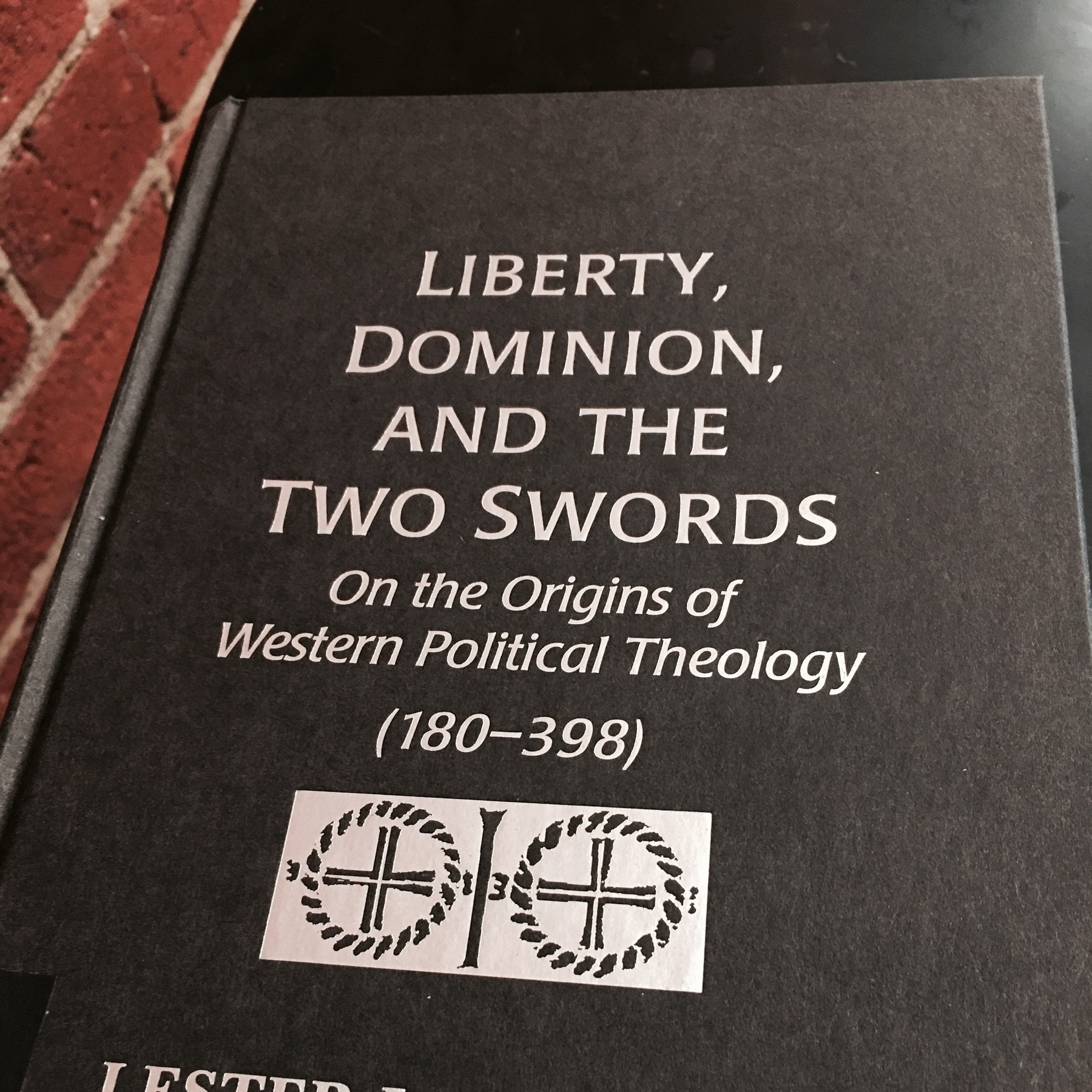Currently Reading: The Seven Storey Mountain by Thomas Merton 📚
Currently Reading: The Seven Storey Mountain by Thomas Merton 📚
I’m looking to buy a digital piano. I’ve read a few reviews online, and it seems like the Casio Ap-270 is a good option at a reasonable price. Any other recommendations in a price range under $2K? 🎵
Currently reading.

When I’m not reading for my dissertation, I’m currently reading: The Experience of God: Being, Consciousness, Bliss by David Bentley Hart 📚
In preparation for a summer course on early Christian political theology, I have been reading the Latin panegyrics, which comprise speeches of praise delivered on behalf of Roman emperors during the third and fourth centuries. They are a fascinating read and particularly helpful for illustrating the political resonances of the gospel in late antiquity. To take one example, here are some highlights from the Panegyric of Constantius, written by an anonymous orator around AD 297:
The upshot of such parallels is not to reduce the distinction between early Christian conceptions of Christ’s kingship and imperial royal ideology. Rather, they help to illuminate the concrete political dimensions of narratives of the life of Christ and beliefs about his person and work, dimensions that are often overlooked by contemporary readers.
Some relatable reflections on writing anxiety from one of my former (and favorite) professors: “I have not resolved to write; I am just writing."
Patrick Deneen on the role of higher ed in politics: “The best course would be for those of us living and working at universities — who would, I hope, agree that it is best not to be a weathervane of the federal government — to make ourselves less reviled or viewed as a partisan operation by opening ourselves to legitimate debates and increasing the presence of faculty and students of genuinely different perspectives and views. We might play a role in moderating and even healing the division that now mars our nation, and engaging in the work of inquiry and exploration to which we should be mutually dedicated.”
Paul D. Miller: “The most urgent and most moral necessity in American politics is to dismantle the two-party system that artificially forces us into an impossible choice between two immoral options, neither of which represents a majority of Americans, embodies the aspirations of the American experiment, or articulates a vision of ordered liberty and human dignity. The American experiment is a miracle of political order, a miracle that is increasingly fragile and has no champions, no defenders, and no partisans in our contemporary political landscape except for the large and growing number of voters who reject the two parties who claim to govern in their name.”
Historically, the church’s political theology, at its best, has served to temper the sword of government with mercy. Elder Qualls’s article in The Atlantic is a beautiful echo of that legacy. “Blessed are the merciful, for they shall receive mercy.”
You can read Dana Gioia’s latest poem at First Things here: Psalm to Our Lady Queen of the Angels.
Central to the poem is the theme of Mary’s association with the exiled and dispossessed, a word of comfort in our Herodian age:
She has been homeless with a hungry child,
A refugee fleeing a brutal warlord.
A mother, she held her murdered son.
Her crown is jeweled with seven sorrows.
Where did the notion of religioius liberty come from? In his recent book, Liberty in the Things of God, Robert Wilken challenges the prevailing narrative that religious liberty originated in the modern era as a result of fatigue induced by the wars of religion and secular philosophy. Instead, he argues that the modern concept of religious liberty has deep roots in early Christian thought. His historical account is structured around three themes: “first, that religious belief is an inner conviction accountable to God alone and resistant to compulsion; second, that conscience is a form of spiritual knowledge that carries an obligation to act; third, that human society is governed by two powers.” (4) Wilken traces these themes through the fusion of early modern intellectual development and the Christian inheritance to demonstrate how religious freedom, used synonymously by Wilken with “liberty of conscience,” came to be understood as a universal, natural right. The book is a valuable—and, like all of Wilken’s writings, exceptionally written—historical examination of an often neglected element of the Christian tradition.
Paul Griffiths on overcoming boredom:
As you learn to cultivate attention over time, you’ll find that your first-personal sense of being the one who is attending will become attenuated. You’ll become filled with and conformed to what you’re attending to, and for one so filled, there’s little room for self-awareness, much less self-congratulation. This conformity to what you’re attending to is boredom’s principal cure, for boredom’s principal characteristic is exactly an excessive self-presence. Close and repeated attention to one or another aspect of the world, which is what an intellectual does, is its cure.
St. Ambrose:
Let our enemies not be jealous of our properties; let them confiscate them, if such be the emperor’s pleasure. I do not give them, but I shall not refuse them. They seek gold; I can say, I do not seek silver or gold. I do not fear this jealousy. I have my bankers and they are Christ’s poor. That is the treasure I have amassed. May they always reproach me for the crime of distributing money to the poor! If they object that I must seek my defense from the poor, I do not refuse this, but even court it. My means of defense are the prayers of the poor. The blind and the lame, the weak and the aged are stronger than the most robust warriors. Gifts to the poor put God under an obligation, as it is written, “He who gives to the poor lends to God” [Prov. 19:17]. On the contrary, a garrison of soldiers often does not merit the divine favor.
~From “Sermon Against Auxentius,” in The Early Church and the State
A brief reflection on reading Athanasius' Life of Antony during the pandemic.
Some of my most radiant interactions with other human beings have been fleeting, glancing moments of small talk. It’s an extraordinary thing. A person stands before you, unknown, a complete stranger—and the merest everyday speech-morsel can tip you headfirst into the blazing void of his or her soul.
Liverpool’s opener reminded me of the 2016-17 season. A thrilling but ultimately disappointing campaign because of vulnerabilities at the back. Hopefully this was just a case of ironing out some defensive kinks. ⚽️
'Tis the gift to be simple, 'tis the gift to be free,
Tis the gift to come down where we ought to be,
And when we find ourselves in the place just right,
'Twill be in the valley of love and delight.
Russell Moore: “Shock and awe power is the way of the crucifiers. Kindness and gentleness is the way of the crucified. No form of Christian engagement sees Simon Peter’s Gethsemane sword-waving as strength and Jesus Christ’s Golgotha cross-bearing as weakness.”
Watching footage of unjust police killings is enraging and traumatizing. It’s also enraging that Americans paid so little attention to such killings before ubiquitous video forced them to confront the issue. No wonder some feel that achieving meaningful reform through the civic process is impossible (a feeling that is understandably heightened in communities where long voting lines, felony disenfranchisement laws, or gerrymandering make democratic organizing more difficult).
But Obama is right, and that feeling of impossibility, however understandable, is demonstrably incorrect. Just look at the mountain of evidence that change through the civic process is not only possible, but a recurring reality, and that it began long before Floyd’s death.
Highly recommend: Reading While Black: African American Biblical Interpretation As An Exercise In Hope by Mccaulley, Esau 📚
Reading those figures from the past, even when he disagreed strongly with them, gave him some perspective on his own moment, and, because they left this vale of tears, some tranquility as well. After all, the dead don’t talk back to us—unless we invite them to. We control the encounter. We decide whether to pay our ancestors attention.
When we make that payment, when we turn aside from the “dire hose” and take a few deep breaths and enter into the world of the past, we can calm our pulse a bit, take time to think. No one demands anything of us. Those figures from the past are willing to speak to us when we are willing to listen. They may sometimes speak words of offense, but they may also speak words of wisdom that we either never knew or have forgotten.
J. Brandon Meeks: Traditional Country Music was an exercise in fearless self-revelation. It specialized in the sort of disconcerting transparency that would get a respectable man or woman fired from a job. But at the same time, it is just the sort of candor to which honest souls aspire as they listen to these old songs in their garages and kitchens.
Though not as conspicuous in the photo, the sun beams looked like they were piercing a hole in the falling water. 📷

From our latest trip to the Dallas Arboretum.
